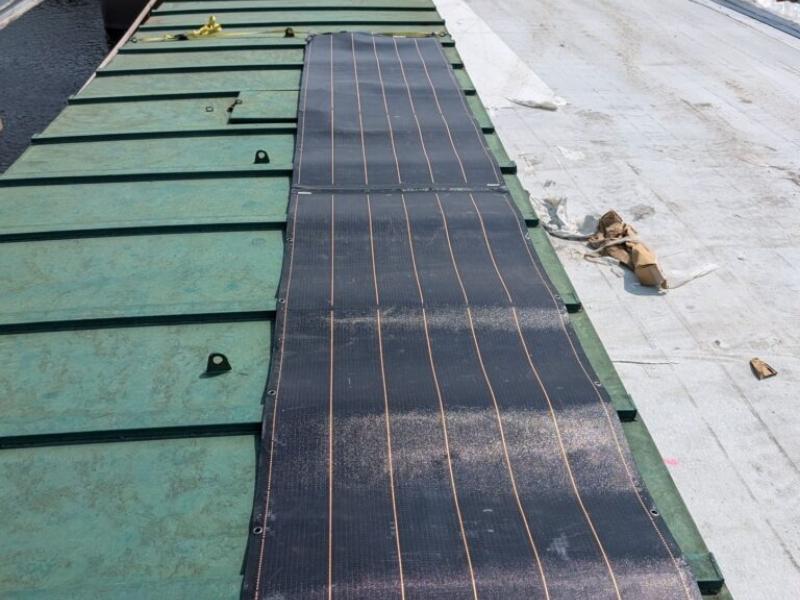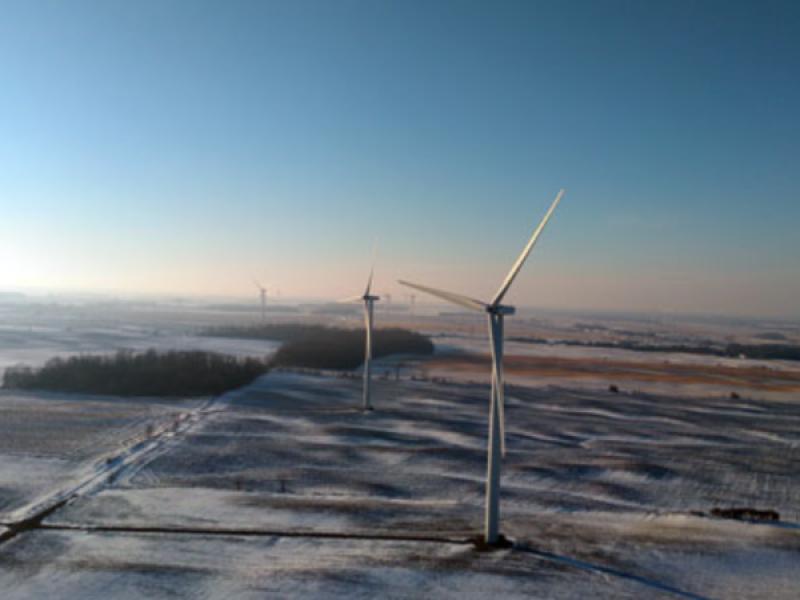
Telus was a sponsor of the Clean Waters initiative, and its shoreline cleanup project, which collected more than 200 tonnes of debris across 300 kms of B.C shorelines. (Courtesy Simon Ager)
Telus Corp. is in the home stretch of its campaign to plant a million trees in Canada, part of its corporate pledge to become zero-waste, carbon-neutral company by 2030.
The company says it has facilitated the planting of 800,000 trees since its initiative began, and is making a final push to get to the million mark. To help with this, Telus has launched a Buy One, Plant One campaign to encourage customers to acquire certified pre-owned cellphones.
The campaign, which runs until May 1, will see Telus plant one tree for every Telus, Koodo and Public Mobile customer who buys a certified pre-owned cell phone during the promotion. The effort is in partnership with Tree Canada.
It’s the latest in a series of sustainability and awareness initiatives from Telus, which has spent over 20 years on the Dow Jones Sustainability North American Index. In 2022, it was also ranked 49th on Corporate Knights’ global top-100 sustainable companies list, up from 54th in 2021. It was first among North American telecoms and second globally.
Another contributor to its mass tree planting venture is Telus’ trees for paper program, now in its fourth year. The program tracks Telus’ use of office paper and packaging materials, with the company funding the planting of an equivalent amount of trees.
In 2021, this program facilitated the planting of 20,094 trees.
Telus’ 2021 sustainability and ESG report
Telus’ green strategy is outlined in its 2021 sustainability and ESG report. Sustainability targets include net carbon-neutral operations by 2030, and sourcing all electricity from renewable or low-emitting sources by 2025 (it is currently at 65 per cent of that goal).
Another 2030 goal for Telus, which is headquartered in Vancouver, focuses on reducing its energy intensity per terabyte of data by 50 per cent from its 2019 baseline.
“Every third year, we do what we call a more formal materiality assessment; identifying those material issues, confirming that what we’re working on is important, and that continuing should be important,” said Geoff Pegg, Telus’ head of sustainability and environment.
“Interestingly enough, biodiversity really stood out in our 2021 assessment as more of an emerging issue in the minds of Canadians and in our stakeholders.”
Since 2010, Telus says it has reduced its GHG emissions by 41 per cent.
Telus’ green goals
Other 2030 goals are to reduce Scope 1 and 2 GHG emissions by 46 per cent from its 2019 totals. Across international and domestic operations in 2021, the company says it produced 255,733 tonnes of carbon dioxide equivalent (tCO2e) in both scopes, excluding 117 tCO2e in biogenic emissions from biodiesel fuels.
By 2030, it plans to reduce its Scope 3 emissions by 49 per cent from 2019 levels, which were 4,294,831 tCO2e in value chain emissions and 20,642 tCO2e from travel and commuting.
The company’s Scope 3 emissions for 2021 will be published in next year’s report; the current release includes the 2020 totals. Telus reports it produced 4,262,191 tCO2e in value chain emissions, and 1,682 tCO2e from travel and commuting (impacted by the COVID-19 pandemic).
Data for the company’s emissions was independently approved by the Science-based Targets Initiative.
As a telecommunications company, the majority of its emissions comes from the energy required to power its networks and buildings.
The challenge, Pegg explained, is in reducing emissions while not sacrificing network speed. Telus’ upgrade from a copper network to a fibre optic connection is one way to be more energy efficient, but Pegg acknowledges the company might not get everything perfect by 2030.
“There’s going to be a small amount at the end, that we can’t probably solve by 2030. We have diesel generators as backup power for remote cell towers, for example,” Pegg said. “There’s no quick solution for that, so we’re going to have to come up with some innovative ideas… but that’s the challenge in front of us.”
Outside of GHG emissions reductions, Telus also targets an annual five per cent reduction in waste to landfills. In 2021, the reduction was 12 per cent.
Looking forward
Over the last few years, Telus has expanded its sustainability measures. This has taken the form of four power purchase agreements (PPAs) in Alberta — three to acquire 82 MW of solar power and one for 78 MW of wind power. The report states Telus has generated and purchased 138,651 MWh of renewable energy since 2010.
In June, 2021, the company became the first in Canada to issue a sustainability-linked bond framework, tying $750 million to the completion of its Scope 1 and 2 GHG reduction targets. The framework, with an interest rate of 2.85 per cent and a maturity date of November, 2031, was created in partnership with RBC Capital Markets, BMO Capital Markets and Scotiabank.
Pegg called it a “natural evolution” for Telus, so in February it offered another framework in the U.S. for just under $1.15 billion at a 3.4 per cent interest rate and a maturity date of May 13, 2032.
The company is open to future innovations or collaborations.
One particular challenge comes from the Telus fleet, which produces about 10 per cent of its emissions. Pegg wants to implement an electrification plan to close that gap.
He also wants Telus to have a more structured approach to sustainability initiatives.
“What I’d like to see happen, and the wheels are in motion I’ll just say, is we’ve done a lot of biodiversity initiatives over the years, but they’ve been more ad-hoc in nature,” Pegg said. “We really want to be more thoughtful in our approach to biodiversity holistically.”
“We’re trying to prioritize where that would be, where’s the biggest bang for the buck.”










